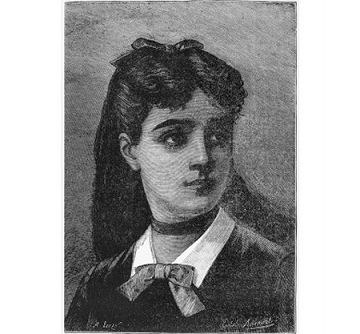Sophie Germain

Librarian note:
There is more than one author in the GoodReads database with this name
Marie-Sophie Germain (French pronunciation: [maʁi sɔfi ʒɛʁmɛ̃]; April 1, 1776 – June 27, 1831) was a French mathematician, physicist, and philosopher. Despite initial opposition from her parents and difficulties presented by society, she gained education from books in her father's library and from correspondence with famous mathematicians such as Lagrange, Legendre, and Gauss. One of the pioneers of elasticity theory, she won the grand prize from the Paris Academy of Sciences for her essay on the subject. Her work on Fermat's Last Theorem provided a foundation for mathematicians exploring the subject for hundreds of years after. Because of prejudice against her gender, she was unable to make a career out of mathematics, but she worked independently throughout her life. In recognition of her contribution towards advancement of mathematics, an honorary degree was also conferred upon her by University of Göttingen six years after her death. At the Centenary of her life, a street and a girls' school were named after her, and the Academy of Sciences established The Grand Prix Sophie Germain in her honour.
In addition to mathematics, Germain studied philosophy and psychology. She wanted to classify facts and generalize them into laws that could form a system of psychology and sociology, which were then just coming into existence. Her philosophy was highly praised by Auguste Comte.
Two of her philosophical works, Pensées diverses and Considérations générales sur l'état des sciences et des lettres, aux différentes époques de leur culture, were published, both posthumously. This was due in part to the efforts of Lherbette, her nephew, who collected her philosophical writings and published them. Pensées is a history of science and mathematics with Sophie's commentary. In Considérations, the work admired by Comte, Sophie argues that there are no differences between the sciences and the humanities.
Germain's resting place in the Père Lachaise Cemetery in Paris is marked by a crumbling gravestone. At the centennial celebration of her life, a street and a girls' school were named after her, and a plaque was placed at the house where she died. The school houses a bust commissioned by the Paris City Council.
The Sophie Germain Prize, awarded annually by the Foundation Sophie Germain is conferred by the Academy of Sciences in Paris. Its purpose is to crown a researcher who has conducted research in fundamental mathematics. This award, in the amount of €8,000 was established in 2003, under the auspices of the Institut de France and its name pays homage to mathematician Sophie Germain.
Germain was referenced and quoted in David Auburn's 2001 play Proof. The protagonist is a young struggling female mathematician, Catherine, who found great inspiration in the work of Germain. Germain was also mentioned in John Madden's film adaptation of the same play "Proof (2005 film)" in a conversation between Catherine (Gwyneth Paltrow) and Hal (Jake Gyllenhaal).
In the fictional work "The Last Theorem" by Arthur C. Clarke and Frederik Pohl, Sophie Germain was credited with inspiring Ranjit Subramanian to solve Fermat's Last Theorem.
